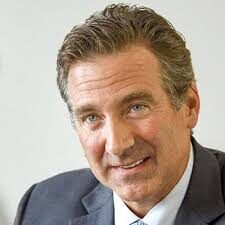
A company needs a new CEO and the search begins. Eventually one is hired, with impeccable credentials, great experience, and a demonstrated track record of success in positions of increasing responsibility. This person is someone who understands the industry, has a solid academic background, and is deeply credible. A great fit.
But two years later, the CEO is gone and it’s clear that the company has taken steps backward, not forward. What happened?
This situation occurs more often than you might think. According to a recent AlixPartners survey, 58% of private equity CEOs are replaced within two years of an investment. Over the lifetime of the PE firm’s holding of a company, CEO turnover jumps up to 73%. This turnover can erode the internal rate of return on a PE investment and lengthen hold times. Equally worrisome, as much as 46% of the PE firms participating in our survey said that unplanned CEO turnover was eroding the internal rate of return (IRR) on their investments. And a whopping 83% said that such turnover was lengthening their investment hold times.
So… what gives? Why is it so hard to find the right CEO?
One answer lies in looking beyond the traditional and time-honored measures and metrics and recognizing a critically important but often overlooked element of CEO success or failure: culture fit.
A situation I was involved in years ago is an excellent example. A company had just purchased a division of a larger conglomerate and was looking for a CEO to run the newly independent business. As it was a consumer products company, a search firm made the rounds of the usual suspects. They looked for business unit leaders or second-in-command executives at Procter & Gamble, Unilever, Philips, and others, and indeed surfaced a great list of excellent candidates. Yet, the board understood the importance of cultural fit in CEO success, and instead chose a candidate from inside the business’s own ranks. An engineer who had never been a CEO, this person, at least on paper, lacked some of the traditional experiences and track record boards typically seek in a leader. But fast forward several years, and what happened? The company grew both revenues and EBITDA rapidly, generating terrific shareholder and stakeholder returns.
There were several reasons why this CEO was so successful. First, the business had a strong engineering culture, one that coveted product superiority over all else. This was a direct fit with the candidate, who had both a passion for, and a track record of, building products of technical superiority. Second, the board believed that they could provide the marketing and sales support needed to drive top-line sales through a combination of their own experience and astute hiring, which they did. And finally, this candidate brought a combination of understatement and humility (a key element of success in this culture), along with an open acknowledgment that he didn’t have all the answers and was willing to be coached.
I was reminded of this success again as we were called in to support the turnaround of a large company that had hired a new CEO two years before. Previous to the role, this executive was the second-in-command at similar company in the same industry, so he understood the dynamics of the sector. In addition, he had worked at a blue-chip consulting company and had been a CEO before. He was Ivy league educated, articulate, and inspired confidence. Yet, he failed miserably. Why? The board members who brought us in reported that this executive had hired people who looked and thought like he did, as opposed to the proud, almost blue-collar sensibility of the existing management team. He had hired a strategic consulting firm to build the company’s growth strategy with limited involvement and input of the executive team. And he was viewed as imperialistic and stand-offish by employees, in stark contrast to the servant-leader culture the company was accustomed to.
It’s not that he was a bad leader or person. He was just not the right CEO for this company’s culture, which ultimately impacted both the company’s and his success.
The need to — and ability to — understand corporate culture and position executives who by dint of who they are and how they operate have a strong chance to succeed, is in my experience, under-valued, and at times over-looked in the decision-making process, and can be a costly mistake. Thankfully, there are ways to avoid it.
Established and proven techniques exist to facilitate this, such as cultural assessments on the company side, and personality assessments on the executive side. There are objective and quantitative tools and methods available to measure both culture and executive performance and potential. Supplementing traditional approaches and gut instinct, these tools bring into much sharper focus the critical ingredients of success when combining leaders and cultures. Both sides of the coin need to be measured and, in doing so, chances of “organ rejection” and misalignment get reduced substantially.
Taking the time and effort to include this as a piece of the evaluation and selection process can greatly enhance a CEO’s odds for success. As the late, great Peter Drucker said, “Culture eats strategy for breakfast.” Words to remember when hiring CEOs.

Chief Executive Group exists to improve the performance of U.S. CEOs, senior executives and public-company directors, helping you grow your companies, build your communities and strengthen society. Learn more at chiefexecutivegroup.com.
0

1:00 - 5:00 pm
Over 70% of Executives Surveyed Agree: Many Strategic Planning Efforts Lack Systematic Approach Tips for Enhancing Your Strategic Planning Process
Executives expressed frustration with their current strategic planning process. Issues include:
Steve Rutan and Denise Harrison have put together an afternoon workshop that will provide the tools you need to address these concerns. They have worked with hundreds of executives to develop a systematic approach that will enable your team to make better decisions during strategic planning. Steve and Denise will walk you through exercises for prioritizing your lists and steps that will reset and reinvigorate your process. This will be a hands-on workshop that will enable you to think about your business as you use the tools that are being presented. If you are ready for a Strategic Planning tune-up, select this workshop in your registration form. The additional fee of $695 will be added to your total.

2:00 - 5:00 pm
Female leaders face the same issues all leaders do, but they often face additional challenges too. In this peer session, we will facilitate a discussion of best practices and how to overcome common barriers to help women leaders be more effective within and outside their organizations.
Limited space available.

10:30 - 5:00 pm
General’s Retreat at Hermitage Golf Course
Sponsored by UBS
General’s Retreat, built in 1986 with architect Gary Roger Baird, has been voted the “Best Golf Course in Nashville” and is a “must play” when visiting the Nashville, Tennessee area. With the beautiful setting along the Cumberland River, golfers of all capabilities will thoroughly enjoy the golf, scenery and hospitality.
The golf outing fee includes transportation to and from the hotel, greens/cart fees, use of practice facilities, and boxed lunch. The bus will leave the hotel at 10:30 am for a noon shotgun start and return to the hotel after the cocktail reception following the completion of the round.